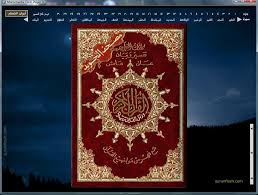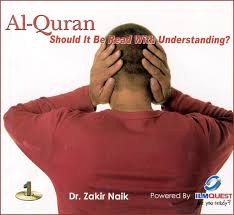Rahsia Ungkapan لا إله إلا الله
a book and a talk here at lancaster university

source to buy at : http://indahnya-syurga.blogspot.com/
Ungkapan yang maha agung ini disusun dengan menggunakan tiga huruf sahaja: alif, lam dan ha.
Di sini sudah ketara kehebatan ungkapan ini. Apakah ada di kalangan manusia yang mampu menyusun satu ungkapan kata yang mengandungi makna yang cukup besar dengan hanya menggunakan tiga huruf sahaja?
Dari segi bahasa, dalam mana-mana bahasa sekalipun tidak akan ada satu ungkapan yang mengandungi makna yang besar disusun dengan menggunakan tiga huruf selain daripada ungkapan لا إله إلا الله
Saiz : 15cm x 10.5cm
Tebal : 14 muka surat
Harga : RM2.00
Untuk Tempahan sila hubungi:
Haji Jalil
email : mdjalilb@hotmail.com
telefon : 012-2389351
sinopsis
source
http://zaadut-taqwa.blogspot.com/2009/04/rahsiah-ungkapan.html
Susunan angka-angka yang memukau membongkar rahsia Kalimah Tauhid
(لا إله إلا الله) adalah sebaik-baik kalimah, semulia-mulia ungkapan, seindah-indah susunan. Tiada yang seumpama atau yang serupa dengannya, baik dari segi bahasa atau maknanya.
(لا إله إلا الله) adalah Kalimah Tauhid, Kalimah Ikhlas yang diseru oleh seluruh para Nabi dan Rasul sejak dahulu hingga kini dan selamanya.
(لا إله إلا الله) adalah kunci pintu syurga. Sesiapa yang akhir kalamnya di dunia ini (لا إله إلا الله) akan masuk syurga.
Lantaran itu Allah telah menyusun ungkapan ini dengan huruf-huruf yang menunjukkan keesaanNya dan menunjukkan bahawa Dialah Pencipta 7 lapis langit dan segala-galanya!
Susunan (لا إله إلا الله) Yang Penuh Mukjizat
Ungkapan yang Maha Agung ini disusun dengan menggunakan tiga huruf sahaja: alif, lam dan ha (الألف واللام والهاء)
Di sini sudah ketara kehebatan ungkapan ini. Apakah ada di kalangan manusia yang mampu menyusun satu ungkapan kata yang mengandungi makna yang cukup besar dengan hanya menggunakan tiga huruf sahaja?
Dari segi bahasa, dalam mana-mana bahasa sekalipun tidak akan ada satu ungkapan yang mengandungi makna yang besar disusun dengan menggunakan tiga huruf selain daripada ungkapan (لا إله إلا الله)
Inilah yang dikatakan sebagai mukjizat dari sudut bahasa.
Huruf kalimah (الله) itu sendiri itulah juga huruf (لا إله إلا الله)
Perhatikan kalimah atau perkataan(الله) juga terdiri dari tiga huruf, iaitu alif, lam dan ha (الألف واللام والهاء)
Ertinya Allah SWT menggunakan huruf-huruf yang ada pada NamaNya (الله)
untuk menyusun satu ungkapan yang menunjukkan hakikat DiriNya. Bukankah ini merupakan satu mukjizat yang sangat besar?
=====
Allah hu akhbar
if only i can read in arabic....
source
http://www.kaheel7.com/ar/index.php/1/238------q---q

| نعيش مع بعض الحقائق الرقمية التي تتجلى في خير عبارة قالها البشر وهي "لا إله إلا الله" .... |
يقول تعالى متحدثاً عن وحدانيته : (فَاعْلَمْ أَنَّهُ لَا إِلَهَ إِلَّا اللَّهُ وَاسْتَغْفِرْ لِذَنْبِكَ وَلِلْمُؤْمِنِينَ وَالْمُؤْمِنَاتِ وَاللَّهُ يَعْلَمُ مُتَقَلَّبَكُمْ وَمَثْوَاكُمْ) [محمد: 19] ، هذه العبارة هي خير ما قاله النبيون ، هكذا أخبرنا سيد البشر عليه الصلاة والسلام ، فمن كان آخر كلامه من الدنيا (لَا إِلَهَ إِلَّا اللَّهُ) دخل الجنة ! وهي كلمة التوحيد ، وعليها يقوم الإيمان وهي مفتاح الجنة، فما هي الأسرار وراء هذه العبارة العظيمة؟
لقد بدأت أتدبر هذه العبارة العظيمة ووجدتُ بأن هذه العبارة تتألف من ثلاثة حروف ألفبائية هي «الألف واللام والهاء» ، والعجيب أن اسم (الله) تعالى يتألف أيضاً من ثلاثة أحرف ألفبائية وهي «الألف واللام والهاء»، أي أن حروف (لَا إِلَهَ إِلَّا اللَّهُ) هي ذاتها حروف (الله)!!!
وهنا تتجلى معجزة لغوية عظيمة، حيث إن الله تعالى اشتق من اسمه (الله) عبارة عظيمة تعبر تماماً عن صفة الله تعالى ووحدانيته فقال: (لَا إِلَهَ إِلَّا اللَّهُ).
ولذلك نطرح السؤال على كل من يظن أن باستطاعته أن يأتي بمثل القرآن ونقول له:
هل يمكن لأعظم مؤلف في العالم أن يؤلف عبارة عظيمة مثل (لَا إِلَهَ إِلَّا اللَّهُ) يتحدث فيها هذا المؤلف عن نفسه وعن صفاته بدقة بيانية كبيرة، كما تحدث الله تعالى عن نفسه بدقة مذهلة، وتأتي هذه العبارة لتدل دلالة واضحة على صفات هذا المؤلف ، تماماً كما تدل (لَا إِلَهَ إِلَّا اللَّهُ) على وحدانية الله تعالى ، ويؤلف هذه العبارة من ثلاثة حروف فقط هي الحروف ذاتها التي يتألف منها اسم هذا المؤلف ؟!!!
ثم نقول بأن معجزة هذه العبارة لم تنته بعد، فالإعجاز لا يقتصر على الإعجاز البلاغي، إنما هنالك نظام عددي مبهر في حروفها. فلو تأملنا الآية السابقة: (فَاعْلَمْ أَنَّهُ لَا إِلَهَ إِلَّا اللَّهُ وَاسْتَغْفِرْ لِذَنْبِكَ وَلِلْمُؤْمِنِينَ وَالْمُؤْمِنَاتِ وَاللَّهُ يَعْلَمُ مُتَقَلَّبَكُمْ وَمَثْوَاكُمْ) [محمد: 19]. نلاحظ أن رقم هذه الآية هو 19 ، وأن عدد كلماتها هو 19 كلمة أيضاً!!! فتأمل هذا التناسق والتطابق العددي المذهل! هل هذا من صنع بشر؟
ولكن السؤال: هل يمكن أن نجد نظاماً مذهلاً لعدد حروف (لَا إِلَهَ إِلَّا اللَّهُ)؟؟ إذا كان البشر يعجزون عن تنظيم حروف يتحدثون بها عن أنفسهم، فإن الله لا يعجزه شيء في الأرض ولا في السماء. ولذلك فقد فكرتُ أن أكتب هذه الكلمات الإلهية الرائعة وتحت كل كلمة عدد حروفها:
عبارة التوحيد: لا إله إلا الله
عدد حروف كل كلمة: 2 3 3 4
وقمتُ بقراءة العدد الناتج كما هو دون جمعه أو تغييره بل نقرأه كما هو فيكون العدد الذي يمثل حروف هذه العبارة العظيمة هو: 4332 والسؤال من جديد: إذا كان رقم الآية 19 وعدد كلماتها 19 فهل يمكن أن نجد في حروف هذه العبارة صدى للرقم 19؟؟؟
لذلك فقد قمتُ بمعالجة العدد الذي يمثل حروف هذه العبارة وهو 4332 بتحليله رقمياً وكانت المفاجأة! فقد وجدتُ بأن هذا العدد يساوي:
4332 = 19 × 19 × 12
ولكن ماذا تعني هذه الأرقام؟ إن الأمر لم يتطلب إلا تفكيراً بسيطاً حتى استنتجت بأن الرقم 19 الأول يشير إلى رقم الآية، والرقم 19 الثاني يشير إلى عدد كلماتها، والرقم 12 هو عدد حروف (لا إله إلا الله)!!!!!
لنكتب هذه المعادلة مع دلالة كل رقم فيها:
4332 = 19 × 19 × 12
(لا إله إلا الله) رقم الآية عدد كلمات الآية عدد حروف (لا إله إلا الله)
هناك علاقة عددية عجيبة بين الأعداد الثلاثة 19 19 12 وبين الرقم سبعة الذي له دور محوري في إعجاز القرآن الكريم، فهذه الأعداد الثلاثة كيفما قمنا بصفها تعطي عدداً من مضاعفات الرقم سبعة وبالاتجاهين، كما يلي:
121919 = 7 × 17417
919121 = 7 × 131303
191912 = 7 × 27416
219191 = 7 × 31313
191219 = 7 × 27317
912191 = 7 × 130313
ولا ننسى أن مجموع أرقام هذا العدد 121919 يساوي عدد سنوات الوحي، أي:
9+1+9+1+2+1 = 23 وهو عدد سنوات نزول القرآن!

ولكن السؤال: ماذا عن حروف اسم (الله) تعالى في عبارة (لا إله إلا الله)؟ أي هل هنالك علاقة بين حروف (لا إله إلا الله) وبين حروف قائل هذه الكلمات وهو (الله)؟؟
لقد أودع الله تعالى في هذه العبارة معجزة عظيمة تدل على أنه هو من أنزلها. لنحلل هذه العبارة من حيث عدد حروفها الألفبائية لنجد:
عدد حروف الألف في (لـا إله إلـا الله) هو 5 أحرف.
عدد حروف اللام في (لـا إله إلـا اللـه) هو 5 أحرف.
عدد حروف الهاء في (لا إله إلا اللـه) هو 2 حرفان.
وبدأتُ أتساءل من جديد: ماذا يمكن أن نرى إذا كتبنا اسم (الله) وأبدلنا كل حرف من حروفه بعدد مرات تكراره في (لا إله إلا الله)؟ لنفعل ذلك ونكتب حروف اسم (الله) أي الألف واللام واللام والهاء، ونكتب تحت كل كلمة رقماً يعبر عن تكرار هذا الحرف في (لا إله إلا الله) أي نبدل الألف بالرقم 5 ونبدل اللام بالرقم 5 ونبدل الهاء بالرقم 2 :
ا لـــــلــــــه
5 5 5 2
وهنا نحصل على عدد جديد هو 2555 وهذا العدد يساوي:
2555 = 7 × 365
ولكن ماذا يعني الرقم 7 وماذا يعني الرقم 365 ؟ إن الرقم 7 هو عدد أيام الأسبوع، والرقم 365 هو عدد أيام السنة!! وبقي رقم آخر وهو عدد حروف (لا إله إلا الله) وهو 12 حرفاً، والعدد 12 هو عدد أشهر السنة!!!
إذن رأينا في هذه العبارة إشارة إلى عدد أيام الأسبوع وعدد أيام السنة وعدد أشهر السنة، فهي عبارة التوحيد لله تعالى أبد الدهر!!
من التناسقات العددية أننا نجد عدد حروف (لا إله إلا الله) هو 12 حرفاً وعدد حروف (محمد رسول الله) هو 12 حرفاً أيضاً!
وأخيراً نقول لكل من يظن أن باستطاعته الإتيان بمثل القرآن، أرجو أن تنظر لحروف اسمك وتحاول أن تؤلف عبارة واحدة فقط (وليس قرآناً) تأتي حروفها بهذا التناسب المعجز لغوياً ورقمياً.
ونذكرهم بقول الحق تبارك وتعالى، بل ونطمئنهم بأنهم لن يستطيعوا ذلك لأن حروف اللغة سوف تقف عاجزة أمام هذا التحدي الإلهي، ولن يجدوا حروفاً تسعفهم في ذلك: (وَإِنْ كُنْتُمْ فِي رَيْبٍ مِمَّا نَزَّلْنَا عَلَى عَبْدِنَا فَأْتُوا بِسُورَةٍ مِنْ مِثْلِهِ وَادْعُوا شُهَدَاءَكُمْ مِنْ دُونِ اللَّهِ إِنْ كُنْتُمْ صَادِقِينَ * فَإِنْ لَمْ تَفْعَلُوا وَلَنْ تَفْعَلُوا فَاتَّقُوا النَّارَ الَّتِي وَقُودُهَا النَّاسُ وَالْحِجَارَةُ أُعِدَّتْ لِلْكَافِرِينَ) [البقرة: 23-24].
source
http://www.kaheel7.com/ar/index.php/1/238------q---q











